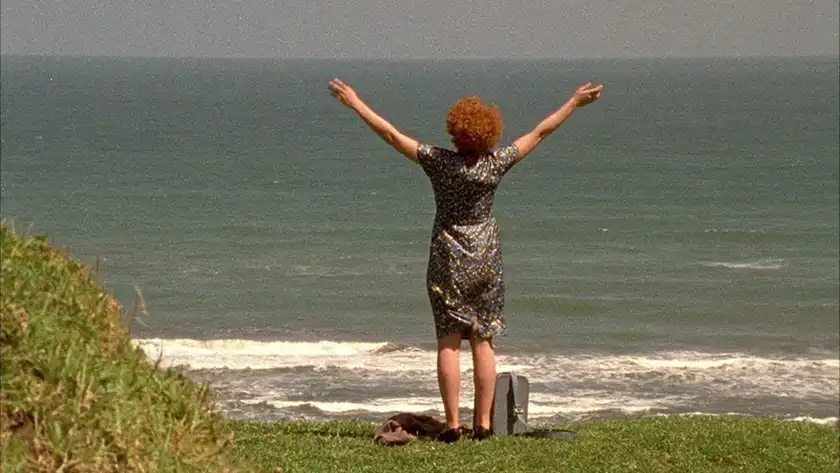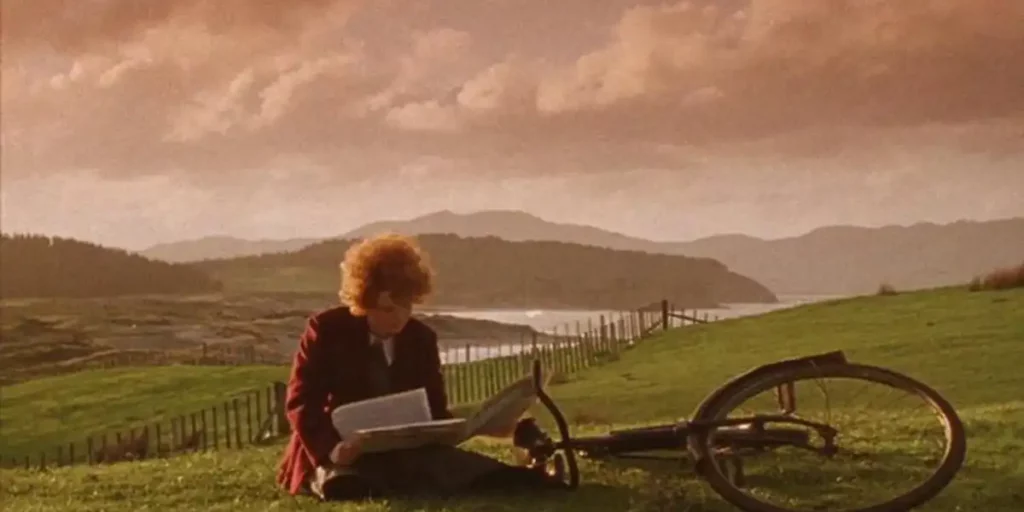An Angel at My Table, Jane Campion’s second feature film, is both touching and troubling in its depiction of author Janet Frame.
Famed New Zealand director Jane Campion (The Piano, The Power of the Dog) knows how to dramatize the intricacies of life better than most filmmakers. With her sophomore effort, An Angel at My Table, she turned her eye (and camera) to author Janet Frame, using raw performances and beautiful cinematography to paint a touching, troubling picture of Frame’s life, the success she achieved, and the horrors she faced.
The film clearly marks a great step forward for Campion as a director. Her feature debut, Sweetie, a film not without merit, did not really give the auteur a real chance to flaunt her talents. An Angel at My Table gives Campion a more expansive canvas to work with, and she uses it to great effect. The cinematography highlights the beauty of New Zealand, its green grass and blue skies. Campion gives the film a fairy tale, storybook quality, which is fitting given the movie’s subject is a real-life storyteller.
An Angel at My Table shines the brightest in its depiction of Frame. The film, based on a series of Frame’s autobiographies, uses different actors to portray the author in different phases of her life: Alexia Keogh as the child Frame, Karen Ferguson as the teenager Frame, and Kerry Fox as the adult Frame. Each actor, donning a head of iconic curly red hair, is able to bring something to the table that showcases Frame’s individuality. Each section of the film also highlights various struggles this woman faced, ranging from teachers targeting her as a child to the dehumanizing impact of her time in a psychiatric hospital as a young adult.
Fox especially is terrific at showing the complexity of Frame’s state of mind, often looking like she is on the verge of either laughing or crying. Campion’s camerawork is worth mentioning here as well, as the director focuses intimately on shots of Frame’s visage, allowing the actors to draw the viewer in even further into the author’s mind.

While the different parts/chapters make sense for this story, they may also be the thing that holds An Angel at My Table back from being better than it already is. I find the first act of the film quite difficult to get into and cannot help but feel like the final two sections to be both dramatically and thematically superior. Though understanding Frame’s childhood is important to understanding the rest of the film, some of the first section feels like it could have been trimmed, and the core thematic moments still would have escaped unscathed.
The second act, much of it entailing Frame’s time in the hospital, and the third act, dealing primarily with Frame’s love life and her success as an author, give Campion more of an opportunity to frame, block, and edit in a way that maximizes both intimacy and discomfort. An example of this includes a scene where Frame, who studied to be a teacher, is being evaluated in a classroom. Clearly nervous at the thought of being evaluated, she stands and stares at the chalkboard, closely examining the piece of chalk in her hand. Campion does not shy away from the awkwardness of the situation, using both long takes and quick edits to the confused glances around the room. The second and third acts are full of these examples. The first act, while still wonderfully directed, simply does not offer as many moving moments, while some of it easily could have been cut from the film’s over-two-and-a-half-hour runtime.
An Angel at My Table is at times touching and at times terribly troubling. It sprawls and spirals as it unspools the story of a writer who faced unparalleled challenges. Its chapter structure may not be perfect, but the film overall proved to be a great step forward for Campion, paving the way for some of her future masterpieces.
An Angel at My Table is now available to watch on digital and on demand. Read more reviews of Jane Campion’s films: The Power of the Dog, The Piano, In the Cut, and Bright Star.

